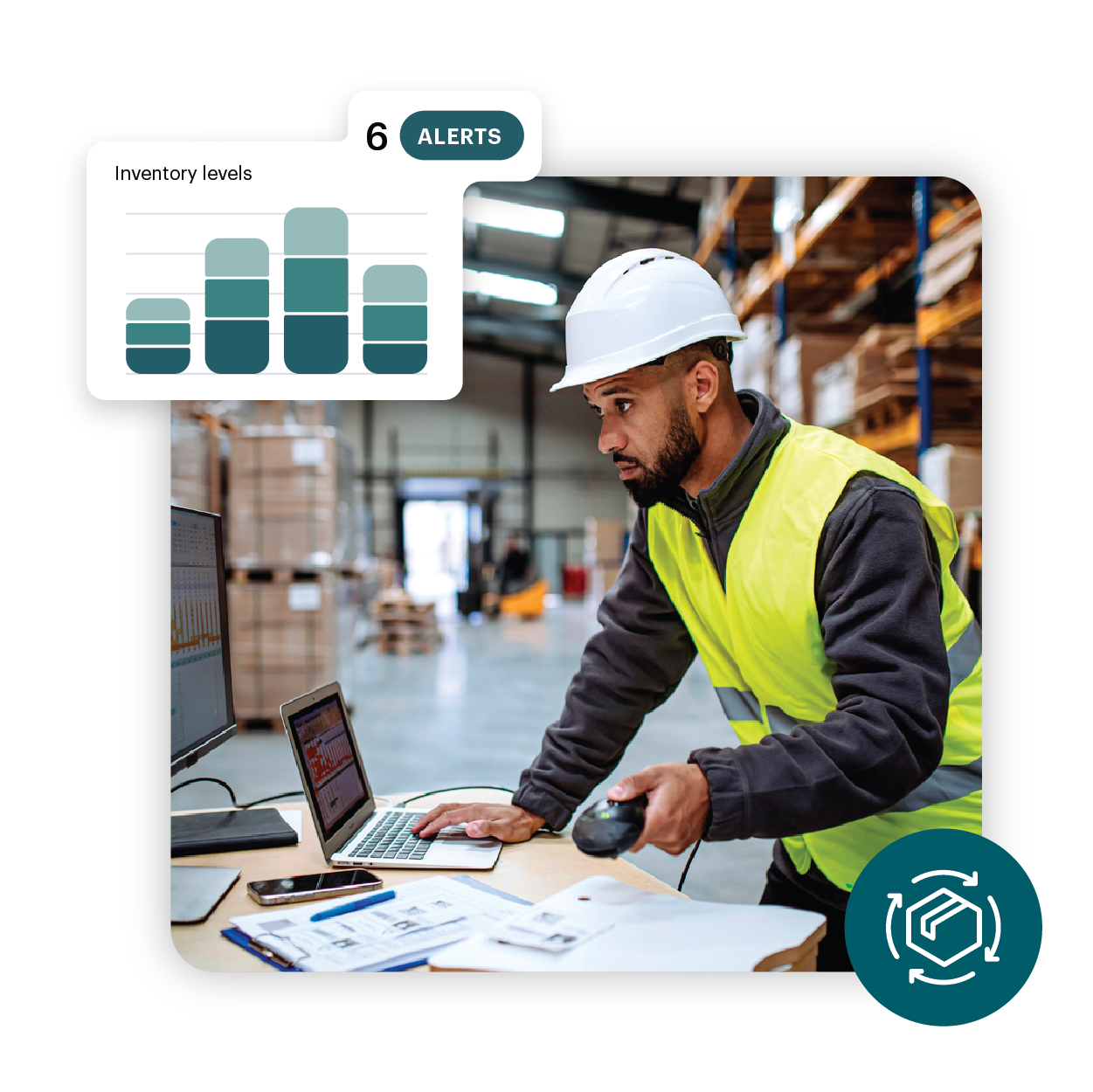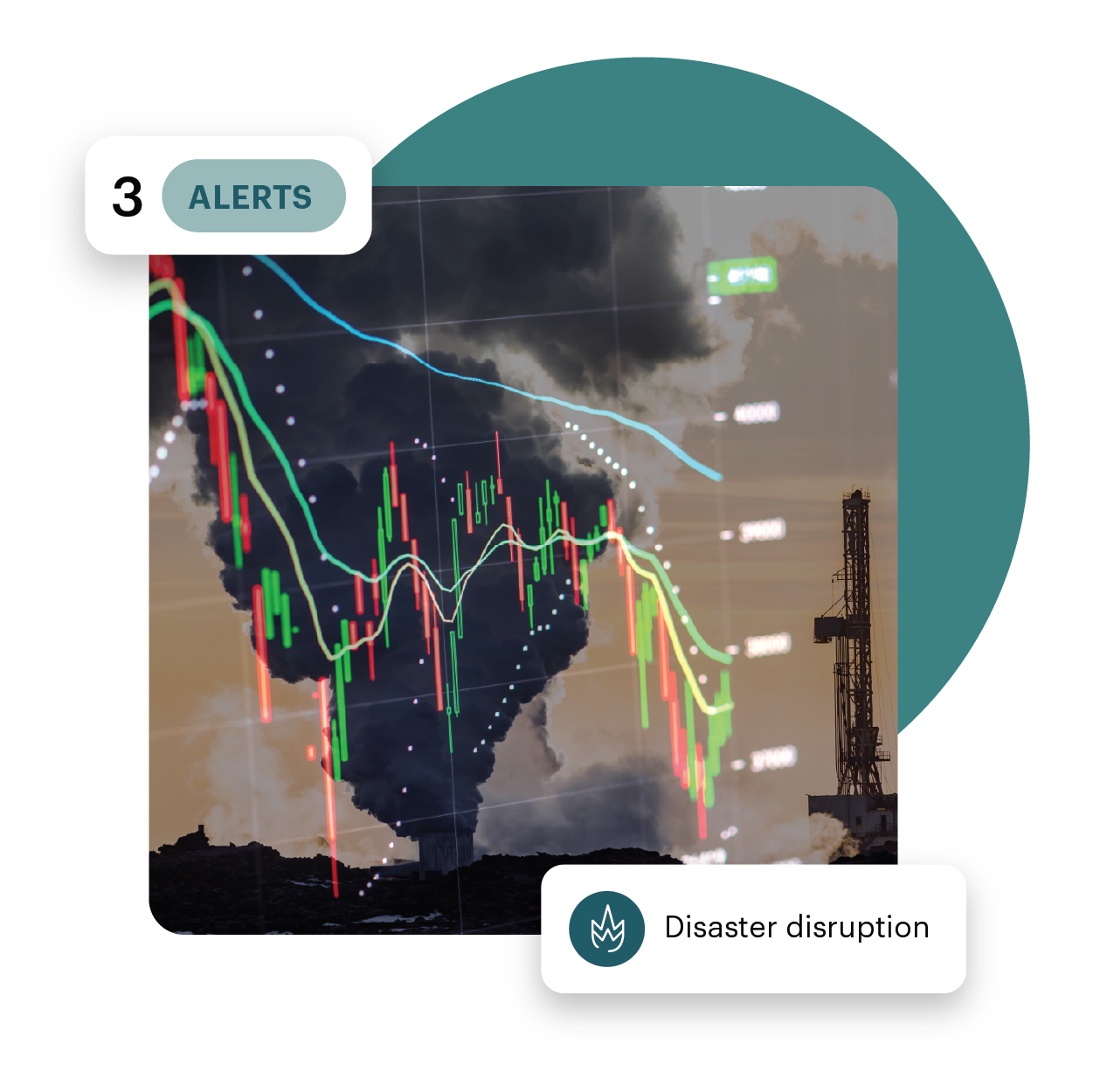Evaluate how you detect, assess, and respond to risks in your supply chain
Supply chain disruptions are occurring with more regularity than ever before, and without technology-driven supply chain risk management strategies, your business may be ill-equipped to respond quickly enough.
Now is the time to ensure you’re prepared for what’s ahead. Our assessment guide will help you see whether your approach to risk management is outdated and inefficient or simplified and up to date.

A simple Q&A to assess your risk management strategy
Are you relying on phone calls and emails to detect disruption, evaluate the impact, and respond to risks? Or has your company evolved to use more proactive, technology-driven risk management strategies? Modern solutions can help you do more than identify risk events – they can also define the impact severity level and help your team know where to focus and collaborate in real-time to maintain supply chain resiliency.
Use this risk assessment guide to compare older risk management methods to a more modern approach and see how your organization stacks up. In the guide, we break down supply chain disruptions into three phases:
Disruption strikes
What is the type, location, and scope of the supply chain disruption?
The immediate aftermath
What are the immediate impacts and how might they affect supply chain security?
The crisis response
What steps need to be taken to maintain supply assurance and salvage business continuity?

Here are a few sample questions to give you an idea of what’s in our assessment guide:
The question |
The old approach |
The modern approach |
|---|---|---|
| How do I hear about supply chain disruptions? | A frantic phone call or email from a supplier | AI scans multiple sources to detect disruptions for you |
| Can my supplier still deliver what they promised? | Wait for supplier responses, hoping for speed and honesty | A collaborative assessment workflow yields impact details straight from the source |
| Is my ability to meet my customer commitments impacted? | Manually matching supplier issues to customer orders, which is slow and tedious | End-to-end visibility instantly links disruptions to demand and suggests solutions to stay on track |
Here are a few sample questions to give you an idea of what’s in our assessment guide:
How do I hear about supply chain disruptions? |
|---|
|
The old approach The modern approach |
Can my supplier still deliver what they promised? |
|
The old approach The modern approach |
Is my ability to meet my customer commitments impacted? |
|
The old approach The modern approach |
Modern solutions to meet today’s challenges
Supply chain risk management has evolved in leaps and bounds. Companies that embrace intelligent automation, AI, and end-to-end connectivity can maintain supply assurance, protect customer commitments, and stay ahead of the unexpected. Those that don’t risk facing costly delays, missed commitments, lost time/ inefficiencies, and lost market share.
Ready to update your supply chain risk management strategies? Download our assessment guide to learn how your company can move from reactive to proactive for improved agility, efficiency, and resilience.

Subscribe to receive e2open updates
Interested in learning more? Stay current with the latest e2open news – from company updates to thought-leadership pieces, and so much more!
Complete this form to subscribe to e2open updates.
Let's get started.



